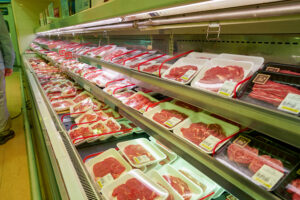Study warns against meat reduction targets for vulnerable groups

A balance needs to be struck between climate objectives and the health and nutrition of the population when reducing meat and dairy intake, researchers say.
Although the assumption is that meat and dairy reductions would be of benefit to climate change mitigation and human health, the ‘reality is more complex’.
This is according to new modelling research released today (7 March) by Food Standard Scotland and the University of Edinburgh.
The study was in response to a Climate Change Committee’s recommendation that Scottish government “takes low-cost, low-regret actions to encourage a 20% shift away from all meat by 2030, rising to 35% by 2050, and a 20% shift from dairy products by 2030”.
But an ‘across the board’ reduction in meat and dairy “cannot be recommended as micronutrient intakes may be worsened among those with already low intakes”, the new study says.
Meat and dairy are important sources of a number of nutrients, including iron, calcium, zinc, selenium, iodine and vitamin B12.
Read full article Share on twitter